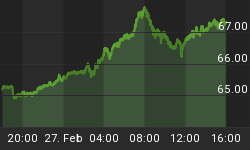Anyone with any real appreciation for cheese won’t lose any sleep over the fact that U.S. sales of processed American cheese have seen four straight years of decline—and the amount of preservatives packed into their individually wrapped slices won’t save them.
The Millennial generation has finer tastes, and like many other industries and segments, they’re reshaping the cheese niche, too. That means cheese—the American way—is falling by the wayside along with beer, yogurt and cereal.
Chain restaurants, such as Buffalo Wild Wings, Ruby Tuesday and Applebee’s have closed dozens of venues over slumping sales as Millennials prove more interested in dining at home, ordering out, or just grabbing a quite bite. This generation also isn’t a fan of Hooters—or any similarly-themed restaurant.
Beer, which is giving way to wine and spirits and falling by the wayside along with cheese as Millennials have less of a taste for it, and for alcohol in general. Business Insider cited Goldman Sachs as downgrading Boston Beer Company and Constellation Brands in July over this very factor.
Nor is it just about food …
Across the board, Millennials are reshaping consumerism, and American cheese is—quite literally—just a byproduct.
This generation—born between 1980 and 1995—is forcing companies to rethink their brand marketing, their services, and their overall offerings.
They’re disrupting advertising—particularly televised—significantly.
According to a consumption and shopping habits study conducted by OpenX and The Harris Poll, if it doesn’t have something to do with a smartphone, it’s not going to reach a Millennial because 79 percent of this generation spends at least three full hours on the phone every day. More than a third clock in at six hours a day. Related: Why Brazil’s Presidential Election Matters For Markets
At the same time, the study showed that Millennials aren’t into live TV. In fact, 41 percent don’t even watch live TV weekly. In other words, almost half of this generation completely ignores TV advertising and that’s hundreds of billions of dollars not reaching this audience. And for those that are actually watching TV, 73 percent don’t watch the commercials. They record, or they stream ad-free services, as reported by digitalcommerce360.
But the truth is much bigger, still.
As Willy Staley, writing for the New York Times puts it, “taken as a whole, millennials do wield an incredible amount of economic and cultural power. This is why they terrify moribund industries, and why those industries are so desperate to fit themselves into young people’s curious lifestyles”.
Now, the cross-industry game is on to see who will survive by figuring out how to target Millennials.
And one of the first branding lessons that big names need to learn, according to a blog by industry expert Robin Lewis cited by Business Insider, is that widespread popularity is the “kiss of death for trendy fashion brands, particularly those positioned in the up-market younger consumer sectors”.
Most recently, Nike has gone to great—and controversial—lengths to win over the Millennial crowd. It went as far as to launch a major campaign featuring NFL anthem-kneeler Colin Kaepernick, saying “Believe in something. Even if it means sacrificing everything.”
Nike was gunning for more market share. The jury is still out on that because while it stands to gain Millennials, it may lose Baby Boomers over the controversy.
As soon as everyone figures out Millennials, they’ll be behind on the next group—Generation Z--the first bona fide, from-birth digital generation, and chances are, they won’t be into eternally preserved American cheese slices, either.
By Michael Kern for Safehaven.com
More Top Reads From Safehaven.com:
















